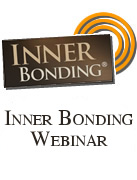Happiness
By Dr. Margaret PaulDecember 31, 2006
Paradoxically, choosing happiness as a primary goal in life often leads to unhappiness. Discover what really creates happiness.
 Many people believe that achieving happiness is the purpose of life, yet the pursuit of happiness often leads to unhappiness. This is because happiness is actually a consequence of a different life purpose - the pursuit of evolving our souls in our ability to love ourselves and others.
Many people believe that achieving happiness is the purpose of life, yet the pursuit of happiness often leads to unhappiness. This is because happiness is actually a consequence of a different life purpose - the pursuit of evolving our souls in our ability to love ourselves and others.
When achieving happiness is your goal, you might pursue this in three different ways:
-
You might pursue momentary pleasure, believing that your happiness is the same as pleasure. When this is your belief, you might pursue happiness through substances such as alcohol, drugs, nicotine, or food. Or you might pursue happiness through activities such as sex, spending or gambling, or through accumulating houses, boats and other things.
-
If you believe that your happiness is attached to money and the outcome of things regarding money, you might pursue control over outcomes through spending most of your time working, as well as accumulating and managing money.
- If you believe that your happiness is attached to people, you might pursue control over getting love, approval, attention, admiration, or acknowledgement.
While momentary pleasure feels good, it is just momentary.
This means that you need to keep on doing whatever you believe will bring you happiness, over and over. This is what creates addictions - the pursuit of what you believe will avoid pain and bring pleasure. The problem is that none of these pursuits bring deep and abiding happiness, because their effects are always momentary.
True happiness is not the result of doing, but rather from a way of being. Rather than resulting from the momentary pleasures of the outside world, it is the result of loving yourself and sharing your love with others.
What Does This Actually mean?
This means that ongoing happiness is the result of choosing the spiritual path of love, kindness, compassion, understanding, and acceptance.
Yet it is not enough to express kindness and compassion toward others. Many have tried this and still end up feeling empty and angry when the deep happiness they desire continues to elude them.
The path toward happiness starts with opening to learning about what is most loving and compassionate toward yourself. You can have all the things that people believe will bring happiness - money, a good relationship, a family, work you enjoy, a beautiful home - yet if you are critical and judgmental toward yourself instead of accepting and compassionate with yourself, you will not feel happy.
Imagine a child who seemingly has everything - tons of toys, the best schools, great vacations, lots of friends. But imagine that this child has parents who ignore him or her, or who are very critical, judgmental and controlling of him or her. This child will not be happy, no matter how many external things he or she has.
Imagine that this child is you - the feelings within you...
How are you treating this child? How do you treat your feelings? Do you ignore your feelings and cover them over with substance or process addictions? Are you judgmental of yourself, constantly telling yourself that you are not good enough, that you are inadequate in some way?
Ignoring or judging yourself will always lead to unhappiness, so matter how much you have in the external world or how loving you are to others. Until you decide to start treating yourself like someone you love and the way you want to be treated by others, deep and abiding happiness will elude you. As long as you are treating yourself the way your parents may have treated you or themselves, you will continue to feel the emptiness and aloneness that comes from self-abandonment.
If you want to experience true happiness, then start a devoted Inner Bonding practice and learn to pay attention to your own feelings with a deep desire to learn about what you are doing or not doing that is causing your pain and unhappiness. Happiness will be the natural consequence of your willingness to take responsibility for your own feelings, and learn about and take actions regarding what brings you joy,
Join Dr. Margaret Paul for her 30-Day at-home Course: "Love Yourself: An Inner Bonding Experience to Heal Anxiety, Depression, Shame, Addictions and Relationships."
Join IBVillage to connect with others and receive compassionate help and support for learning to love yourself.
 Send this article to a friend
Send this article to a friend  Print this article
Print this article  Bookmarked 3 time(s)
Bookmarked 3 time(s)
| Related Articles |
|---|
| The Way to Happiness |
| The Happiness Choice |
| Happiness Versus Pleasure |
| 5 Choices to Create Happiness |
| Do You Fear Happiness? |
Comments
| Author | Comment | Date |
|---|---|---|
| Join the Inner Bonding Community to add your comment to articles and see the comments of others... | ||

Daily Inspiration
Judgments, whether toward yourself or others, often create resistance. Others pick up your judgmental energy even if you don't say anything. Today, notice your judgmental thoughts and replace them with kind, compassionate thoughts.
By Dr. Margaret Paul

 Share with Del.icio.us
Share with Del.icio.us Share with Digg
Share with Digg







